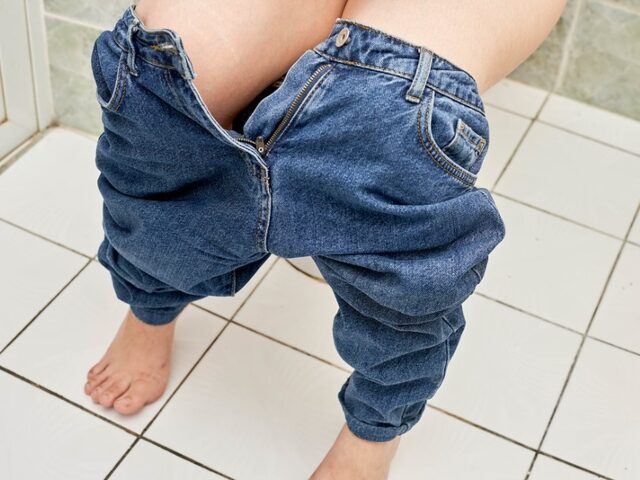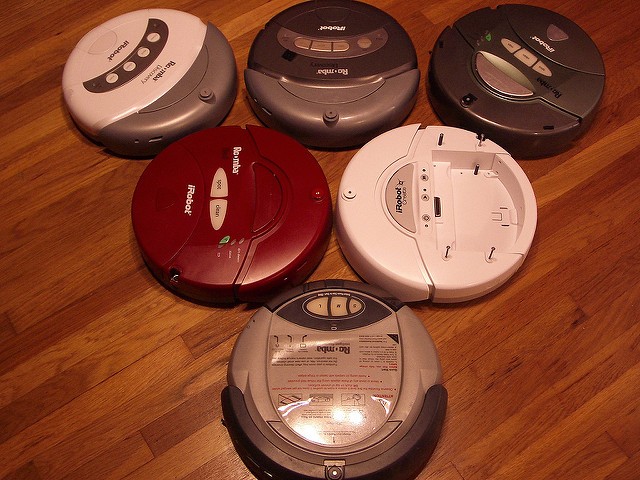Testers for the popular Roomba automated vacuum cleaner made by iRobot have stated that they feel misled after intimate photos of them ended up on Facebook. One woman found pictures of herself sitting on the toilet, never imaging her robot vacuum would violate her privacy. The pictures were reportedly posted to social media by Venezuelan gig workers.
Breitbart News previously reported that during the autumn of 2020, a group of gig workers based in Venezuela posted various pictures on online platforms where they discussed work-related matters. The images, some of which were often intimate in nature, showed scenes from inside homes taken from a low perspective.
In one shot, a young woman could be seen sitting on a toilet with her shorts pulled down to mid-thigh. The images were taken by her Roomba J7 series robot vacuum made by iRobot. The photos were sent by iRobot to Scale AI, a startup that contracts workers to label audio, photo, and video data to train artificial intelligence. Amazon is in the process of acquiring iRobot, driven by an insatiable lust to hoover up every last shred of its customers’ data.
Now in a new report by the MIT Technology Review, many Roomba testers have reportedly begun expressing their frustration, stating that they feel misled about the testing process.
Users who agreed to participate in the data collection as test subjects and signed consent forms were allegedly not made aware of the possibility of data sharing or breaches of privacy. Since then, several testers have expressed concerns about how iRobot handled their data and believe the company misled them.
Greg, one of the beta testers, claimed he didn’t think he had given iRobot permission to share his data in a global data supply chain where contractors in other countries could screenshot and share pictures taken by the device’s front-facing cameras. According to Albert Fox Cahn, executive director of the Surveillance Technology Oversight Project, “there is a real concern about whether the company is being deceptive if people are signing up for this sort of highly invasive type of surveillance and never fully understand… what they’re agreeing to.”
An investigation by the MIT Technology Review revealed that gig workers in Venezuela were asked to label items in photographs of home interiors taken by the Roomba vacuum, some of which included people with visible faces. The employees subsequently posted at least 15 images to social media groups, including pictures of a child and a woman using the restroom. It is thought that this is not an isolated incident and that labelers frequently receive access to private photos, videos, and audio.
iRobot terminated its agreement with one of the data annotation businesses it was working with, Scale AI, in response to the investigation. However, iRobot CEO Colin Angle stated in a LinkedIn post that making such images available was necessary for training the company’s object recognition algorithms, denying the concern that human gig workers could see test users’ images and faces.
MIT Technology Review has received copies of test users’ iRobot agreements. A general agreement, a “global test agreement for development robots,” as well as agreements on non-disclosure, test participation, and product loans, are among the various forms that make up the agreements. These agreements do mention data protection for test users, but they are not very specific about what that entails or with whom the data will be shared.
According to the “global test agreement for development robots,” iRobot is the data controller and has legal obligations to make sure that data is only collected for legal purposes, stored securely, and processed. Greg and the other test subjects are worried about the company’s lack of accountability and think that iRobot has violated this agreement.
Although iRobot testers are not compensated, they might get gifts cards or free production versions of the product once it is released. However, given the potential loss of privacy, testers found this compensation to be disappointing. Even before considering that “my naked ass could now be on the Internet,” as one tester put it.
Read more at the MIT Technology Review here.
Lucas Nolan is a reporter for Breitbart News covering issues of free speech and online censorship. Follow him on Twitter @LucasNolan


COMMENTS
Please let us know if you're having issues with commenting.